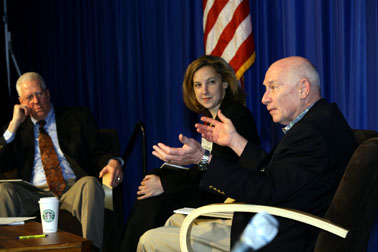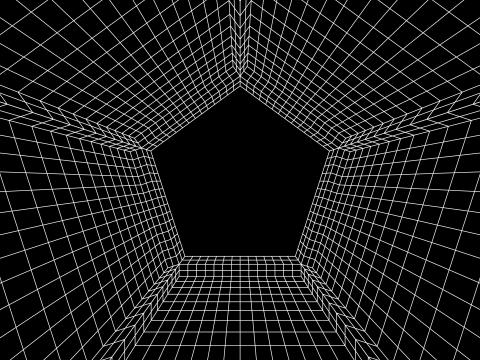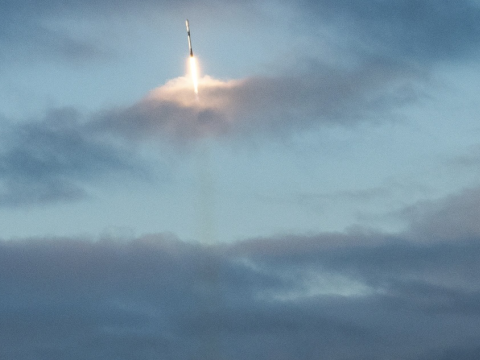 |
| Rear Adm. Michael McDevitt, USN (Ret.), director, Center for Naval Analyses Strategic Studies (r), discusses China's modernization as fellow panelist Dr. Jacqueline Newmeyer, president and chief executive officer, Long Term Strategy Group LLC, and panel moderator David Hartman, former host of Good Morning America, listen. |
China is moving systematically to be a world power in economics and military operations by 2050, say panelists discussing whether China is a friend or a foe. However, none of this morning's panelists from the "China: Friend or Foe" breakfast dialogue could resolve that overall issue. They noted that many of China's moves are based on supporting its long march to modernization, and it sees continued peace in East Asia as a key to achieving that goal. However, it believes it must be able to counter U.S. military power to ensure its continued progress. And, it has gone to war frequently in the past 60 years, often while at peace.
Rear Adm. Michael McDevitt, USN (Ret.), director, Center for Naval Analyses Strategic Studies, noted that China is simultaneously a partner, a competitor and a potential enemy. The Bush Administration "got China right" in its foreign policy, the Obama Administration inherited a good relationship that it mustn't make worse.
Dr. Jacqueline Newmeyer, president and chief executive officer, Long Term Strategy Group LLC, agreed with Adm. McDevitt on the Bush Administration China legacy, but she noted that China has the "dramatic ambition" to vie with the United States. China does want peace in the region, but it doesn't want to be encircled by potentially rival or hostile nations.
Adm. McDevitt looked at some issues from China's perspective. He is concerned that the United States is pursuing a competing strategic framework in Asia, and he noted that most issues are maritime in nature. China's economic growth engine largely is based in its coastal regions, which are extremely vulnerable to U.S. naval forces.
Newmeyer cast a cautious eye on China's internal socio-economic structure. She sees "real questions about China's ability to move up the economic food chain," particularly given its sclerotic society and government controls that hinder innovative behavior. She also sees "real prospects" for political instability in China, which drives much of the government's need for internal control.




Comments